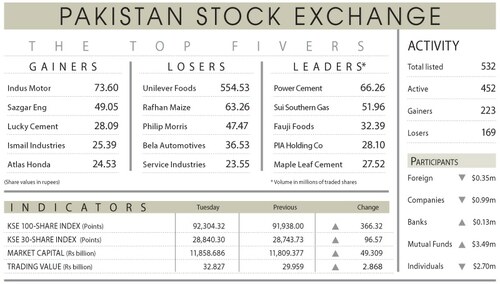THERE must be a hush in the extraterrestrial firmament as an unusual meteor blazes with tremendous velocity towards its heavenly abode. Air Marshal Nur Khan was my mentor, a leader whose body and soul were forged in tempered steel. There are few who have lived with such courage and conviction.
He was the second Pakistani chief of the air force, but second to none. Excellence was never an option; it was an instinct he proved as he took PIA to the galaxy of the world’s best airlines. In July 1965 he returned to the air force to take over from Asghar Khan, and led the PAF with stunning success into the war of 1965, which he always exhorted as a senseless war perpetrated by unprofessional men at the helm.
I knew him from the time he commanded the base at Mauripur (Masroor) and led a flypast of 100 F-86 Fighter aircraft on March 23. He wanted every fighter on the PAF to take to the air. It was near impossible. But he had the gumption to motivate the men in blue to achieve the impossible. The spectacle was witnessed by millions in Karachi in the mid-1950s, with Nur Khan leading, just before he left to take command of PIA.
His achievements as MD PIA were not limited to the airline. His contribution to Pakistan’s sports was epoch-making. He raised the standard of squash and hockey from the mediocre to world class. Pakistan emerged as world champions from the developing world to challenge the mighty First World.
Meanwhile, his individual courage was tested when a Fokker Friendship was hijacked and made to land in Lahore. When all negotiations failed, Nur Khan flew to Lahore and decided to take charge. To everyone’s bewilderment and admiration he entered the small cabin and physically overpowered the hijacker just as he fired his gun, wounding the air marshal. However, he was overwhelmed by Nur Khan.
The day he took over the PAF in July 1965, he discovered much to his chagrin and more so for Asghar Khan that neither had been told by president Ayub Khan or Gen Musa that thousands of mujahideen including Pakistan army commandoes had been launched to take Kashmir. He shot off to GHQ to confront Gen Musa, the army chief, asking why the PAF had been kept in the dark. Musa told him that the president did not want to escalate the limited operation and the PAF had to stay out.
Nur Khan had anxious moments knowing that the ill-conceived action would inevitably conflagrate. What would he say to the nation if the Indian Air Force (IAF) was to pre-empt and ground the PAF in a relentless air operation? The rest is history. But for his alacrity and strategic perception the PAF would been devastated by a numerically preponderant IAF.
Nur Khan put the PAF on red alert on Sept 1 as the army’s Operation Gibraltar came to a grinding halt and the Indians began a massive assault against Pakistan. In those moments Nur Khan was deeply concerned about the survival of the mujahideen force in the Kashmir valley with no hope for supply reinforcements.
Nur Khan ordered C-130 flights in the valley after consulting with the 12 Division command in control of the Kashmir misadventure. He boarded the first C-130 mission past midnight in inclement weather with a rudimentary radar, in total darkness in the treacherous valley. When Group Captain Zahid Butt overshot the drop zone, placed between high peaks on either side, he decided to abandon the perilous mission. Nur Khan peering over his shoulder asked him to make another attempt. This time the supplies were dropped on target.
Such was the audacity of the man in command of the PAF. The news propelled the morale of the PAF to incredible heights. Its performance in the 1965 war is written in glorious splendour.
I had the honour to fly with him as escort fighter during many missions he flew with my squadron based in Peshawar. He would arrive straight from his residence to our squadron, don his flying gear, order coffee and a hamburger, just like any young fighter pilot and off we went to the firing range at Jamrud.
Everyday he returned with incredible scores which the best pilots in complete form could hardly achieve. When I would tell him that he was going too low in the attacks, he would reply, “that is how you would need to attack the enemy in war”.
The war was not on, yet he was irrepressible and would wait for the ‘hit count’ and rocket results.
One day when I had to abort for aircraft malfunction, my flight commander escorted him to the range. When he returned he had already been informed by the range officer how many hits he had scored on the target. As he stood on the wing of the Sabrejet he smiled and said, “Now you beat that bloody score, Haider.”
He had scored 100 per cent hits on the target. He had beaten my score. A record never broken by the very best anywhere to the best of my knowledge. That was my mentor, a man who considered nothing impossible and proved it with his excellence, integrity and intrepidness. A legacy few air forces can boast to have inherited.
Farewell, my chief, I know you hated it when I wrote in my book that you were a maverick, but you know that I meant you were incomparable and lightening fast. You liked that. Pakistan’s history will place you on the highest pedestal of military leadership. May your heroic and noble soul rest in peace.
The writer is a retired air commodore.












































Dear visitor, the comments section is undergoing an overhaul and will return soon.